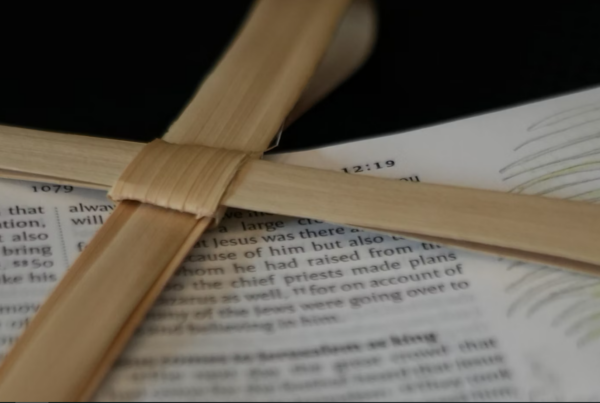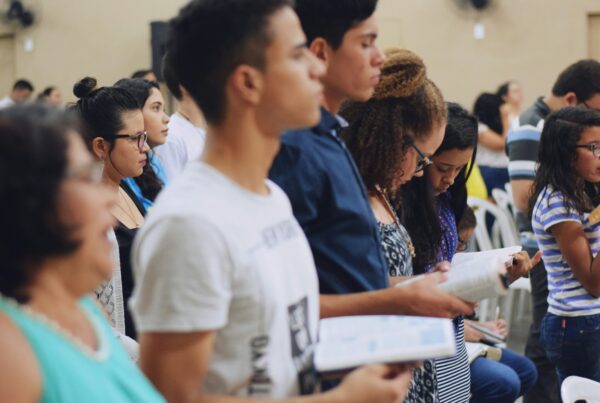O ne recent Sunday morning, I was a first-time worship visitor at a church, and I was dismayed by its assumptions about people with disabilities. My experience of ableism—discrimination in favor of able-bodied people—came directly from the pastor who spoke from the pulpit and from the church culture’s ableist expectations that people with disabilities are all seen as “the least of these” and “the less fortunate.”
The interpretation given was from Luke 13:10-13, where Jesus, on the Sabbath, compared a disabled woman—bent over for 18 years—to a beast of burden, and then healed her. The congregation was exhorted to seek out those described in Matthew 25 and Luke 13 as the “least of God’s children”—the less fortunate, helpless, disabled people bound by Satan in our time—to bring healing to them in the way Jesus healed this woman. I cringed as I braced myself against the deluge of pity and simplistic, toxic theology exuding from those around me.
Related: Disability Theology Touchpoints
Nothing was said to balance the experience of this ostracized, first-century Palestinian woman of the text with the experience of everyone today who has ever been seen as less than or less fortunate by our dominant culture’s bias, unrealistic expectations, classism, racism, sexism, and, yes, internalized ableism.
No alternative, counter experiences were shared about some of the causes of and contributors to disability—what Walter Brueggemann calls the demonic principalities and powers of our world, those systems of discrimination creating a world that exacerbates disability, sustains poverty, offers no universal health care, and limits when and where disabled people can go.
No mention was made of the millions of disabled people who successfully advocated, protested, and voted for the passage of the Americans with Disabilities Act (ADA) in 1990, and then the amended ADA in 2008—those whose hard work created healing access for these once able-bodied neighbors around them.
No mention was made of the current crop of elderly people now using elevators in public buildings, ramps rather than stairs, automatic door openers, and accessible bathrooms in their workplaces—all so they can engage in the business, travel, and leisure of their lives along with their able-bodied peers.
And no critique was given for the ways so many church buildings are still not accessible, and how our inaccessible structures still forbid healing community to be offered to our disabled siblings.
The half-dozen members there that morning in wheelchairs and walkers had to park in the parking-lot fire lane and sit in the sanctuary aisles because designated parking spaces, pew cuts, and easier access into the building had not been afforded them. And they had to listen to yet another insipid sermon about how unfortunate their lives were, and how they needed to be shown compassion by Christians praying for divine healing and deliverance.
Related: General Tips for Disability Accommodation in Church and Ministry Settings
This is toxic ableism, and it is certainly not how Jesus taught us to love each other. The church is called to welcome, love, and care. That ableism is still rampant in the church highlights a significant shortcoming and sin. We ought to do better; we need to end ableism at church.
End ableism at church
Melinda was a keynote speaker on ending ableism for the annual RCA-CRCNA Disability Concerns training in August 2022. With Lynn Swedberg, Melinda presented ways churches can combat ableism and increase inclusivity toward people with disabilities. Listen to the session recording here (their presentation begins at the 18:13-minute mark) or explore the list of resources for church and individual use.
Rev. Melinda Baber
Rev. Melinda Baber is pastor of Phillips United Methodist Church in Lakewood, Colorado. She is a certified Benedictine spiritual director who has served in parish ministry and in law enforcement and hospice chaplaincy for more than two decades and has masters-level degrees in trauma-informed disability justice. She was diagnosed as autistic in 1993, and she is the fortunate, grateful mother of four adult children, three of whom are also disabled and neurodivergent. She is a member of the Disability Ministries Committee of the United Methodist Church.



